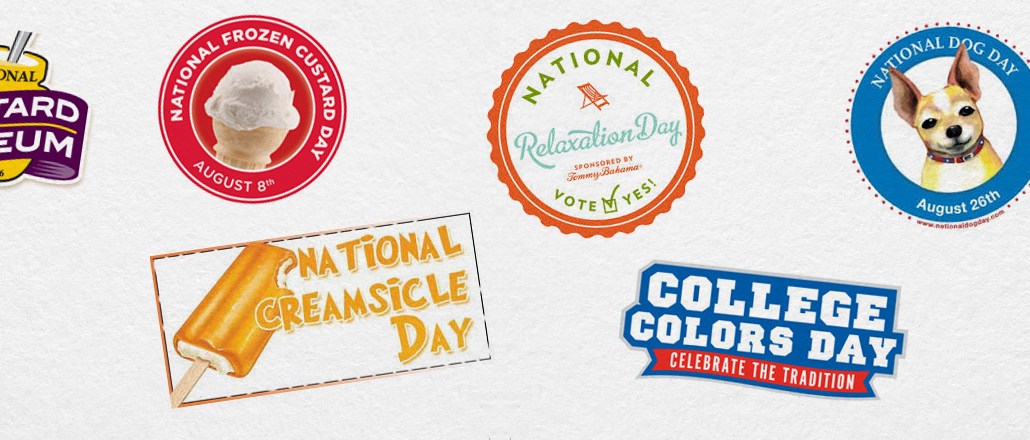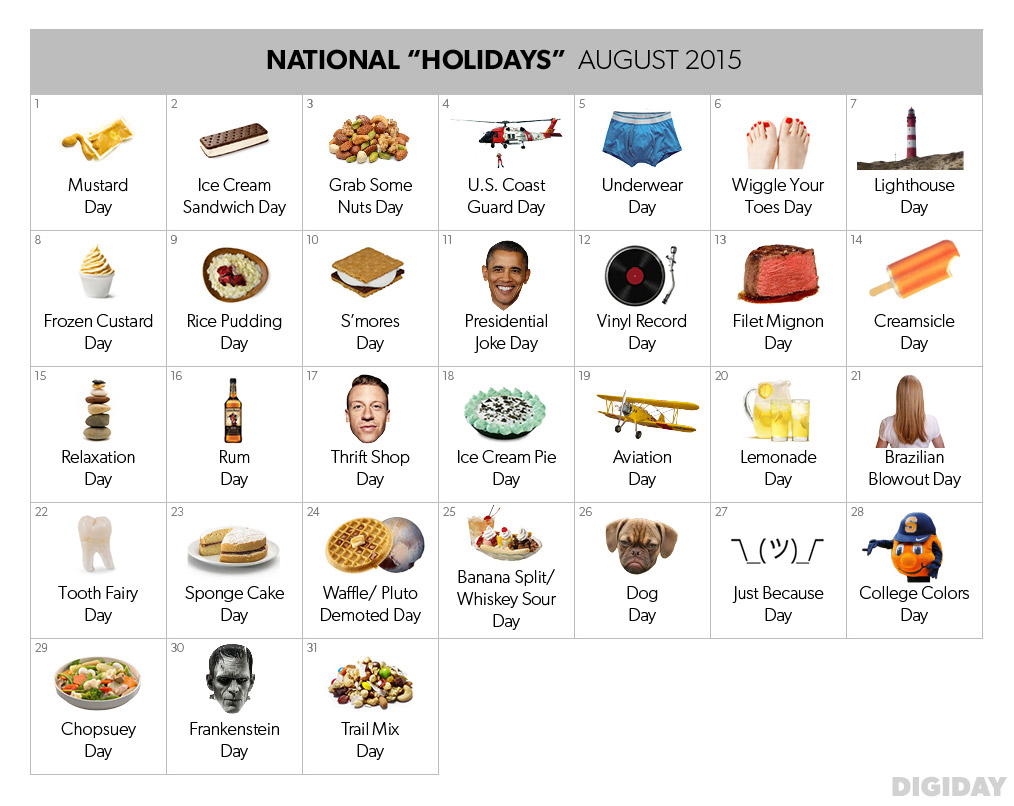Secure your place at the Digiday Media Buying Summit in Nashville, March 2-4

These days, a holiday doesn’t necessarily have to mark a day of national or religious significance. It can celebrate lemonade, working “like a dog,” and Brazilian blowouts. And there’s the thing: Anyone can declare a “national” holiday. In true American fashion, it’s simply a matter of marketing the hell out of it to make it a reality.
Please, do not confuse National Donut Day with Armed Forces Day. The latter was created by President Harry Truman in 1949 and the former is a marketing schtick promoted by Dunkin Donuts. Although the Congress still votes on commemorative resolutions to recognize certain days on occasion — as it did with Pi Day in 2009 — most remain unofficial.
But that hasn’t stopped marketers from clambering on the bandwagon of ginning up ridiculous holidays for just about every day of the year. There’s National Pancake Day (IHOP), National Underwear Day (skivvies monger Freshpair) and National Pie Day (American Pie Council).
“It can be a really great excuse to have a pillar moment in the year that wouldn’t otherwise exist, but there needs to be an obvious connection with or incentive for the consumer or it comes across as desperate,” said Andrew Cunningham, social marketing lead at digital Huge.
The good news: There’s a made-up holiday, usually with thinly disguised marketing goals, for you to celebrate every day of the month.

More in Marketing

WTF are tokens?
When someone sends a prompt or receives a response, the system breaks language into small segments. These fragments are tokens.

AI is changing how retailers select tech partners
The quick rise of artificial intelligence-powered tools has reshaped retailers’ process of selecting technology partners for anything from marketing to supply chain to merchandising.

YouTube’s upmarket TV push still runs on mid-funnel DNA
YouTube is balancing wanting to be premium TV, the short-form powerhouse and a creator economy engine all at once.





